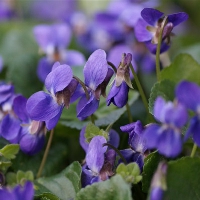Every family hopes to have a healthy child, but many children will suffer from autism, which is a common disease of children. If this problem occurs, have you ever thought about what causes it? Today we will talk about the causes of childhood autism.
What are the causes of childhood autism?
1. Tense family atmosphere
According to statistics, the number of autistic children is about 3.5 times that of the past. This is related to the parents' intense work, lack of time to accompany their children or impatience with their children. The incidence of childhood autism used to be 2 per 1000, but now it is 7 per 1000. Autistic children are more likely to have language problems, in addition to hyperactivity disorder, limb incoordination, and so on.
2. Environmental and information pollution
Autism can be said to be a leading "modern disease", and information pollution is also one of the main reasons for the increase in the number of children with autism. Surrounded and submerged by information, some people subconsciously reject information and are tired of interpersonal communication, which has an "allusive" effect on future generations. The intensification of social competition pressure and the increase of survival pressure have led to the loss of kinship, which is also the main reason for autism.
3. Genetic factors
Among 20% of autistic patients, people with insufficient intelligence, language retardation and similar autism can be found. In addition, about 10% of autistic boys have fragile chromosomes.
4. Related to the organism itself
After five years of research, experts found the chromosome that causes autism in children. These findings reveal the mystery of autism and provide new clues for the prevention and treatment of autism. Up to now, no reason has been observed for the correlation between brain development and activity in autistic children.
5. Abnormal immune function
Immune function is a very important part of children. If there is damage, it will reduce the number of immune cells and reduce the anti infection function. According to the survey, the immunity of autistic children is generally lower than that of normal children of the same age.
How to make autistic children speak actively?
Maybe most of them are not interested in finding children's goals, but as long as you know what they want and seize the opportunity, parents can make children more interested in communication by rewarding them.
Demonstrate the correct way of expression to the child. When the child wants something, we should demonstrate it to the child and imitate it in a simple way. The child may not accept it at first. Parents should insist on letting the child accept it slowly.
Let children take the initiative to speak, create a way for children to speak actively, show them what they want, and praise and encourage children more.
Strengthen communication and interaction with children, pay attention to the language of communication, and use some targeted and practical situations to strengthen children's language expression.
Don't expect to encourage others. Just learn to speak, he should learn to speak about oranges. Start with words, words and short sentences, and change the way to teach children.
When children start to talk, parents should encourage them to cheer them on, contact some symbolic language, such as what this is, who it is, and let them integrate into the society.

